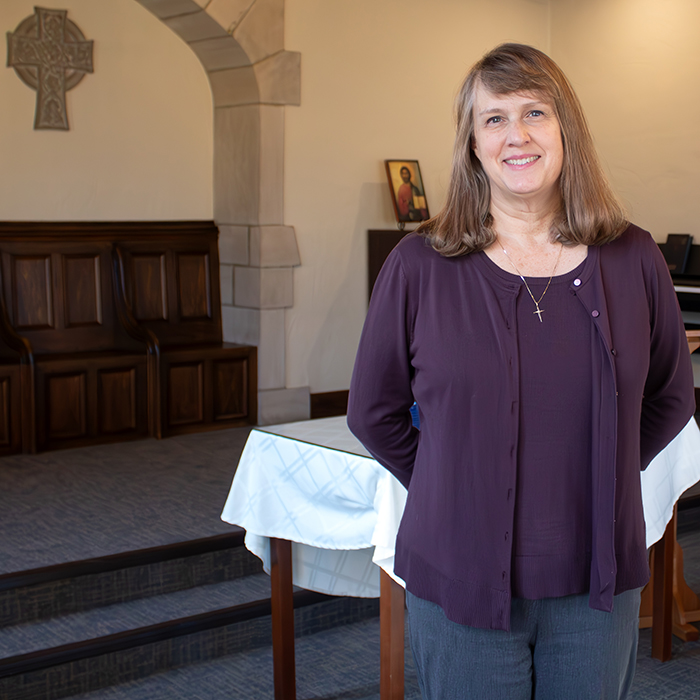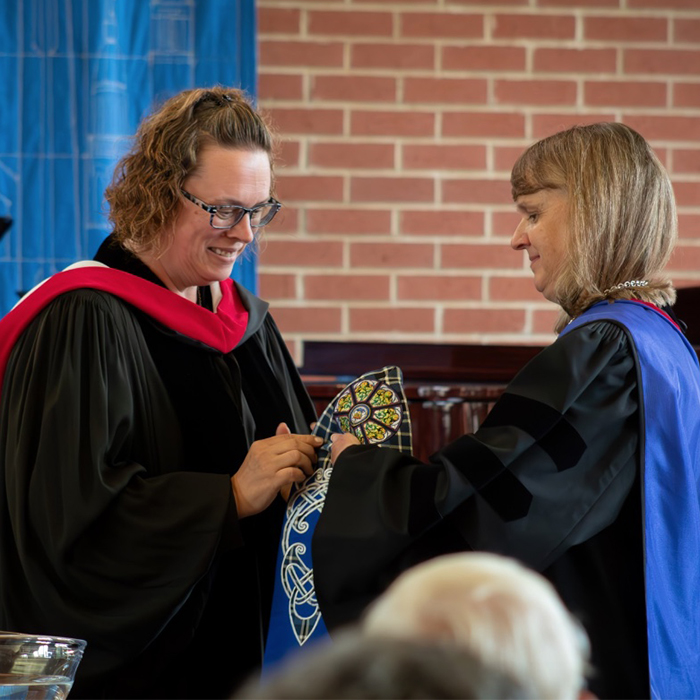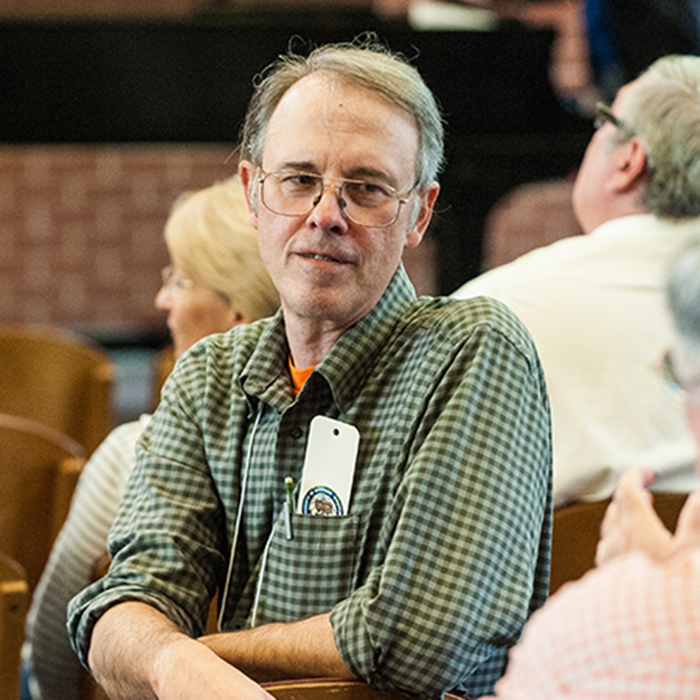
The Doctor of Ministry degree program is designed with a focus on congregational renewal and enhancing your leadership role as the pastor or church leader. Based within your local congregation, our approach offers concrete leadership tools and strategies for you, the pastor, while remaining rooted in the classical theological disciplines of the church.
Degree Distinctive
- Faculty-led cohort groups: Two faculty members design the curriculum, provide the majority of teaching, create the reading list, and evaluate seminar papers. The seminars presume faculty and students each bring knowledge and wisdom to the dialogue.
- Pre- and post-seminar online interaction and self-directed learning: Pre-residency work consists of readings or special projects that are completed prior to the on-site residency. Post-residency work includes specific written projects that integrate reading, work done in residence, and the experience of ministry in the student's ministry setting.
- Peer learning: The cohort group structure creates a unique and consistent support community that continues throughout the program. Peer learning creates an added dimension of community support and fellowship that often continues well beyond the program, even throughout the rest of a student's life.
- Congregational resource team: The congregational resource team offers representatives from the student's ministry context a vital connection to the program. This team agrees to engage, support, and encourage the student for the duration of the DMin program.
- Faculty resource team: The intent is to create a learning environment characterized by nurture, study, devotion, and discipline, one that encourages the student to become a more faithful and effective pastor.
- Doctoral project: The capstone of the DMin program is the doctoral project. The purpose of the doctoral project is to provide students with the opportunity to address a particular issue in ministry and offer new insights that contribute to pastoral effectiveness. The two possible options for the doctoral project are a ministry focus paper or a DMin thesis.
- Project colloquy: All students are required to participate in the annual Doctor of Ministry colloquy before receiving their degree. The colloquy is an opportunity to present the ministry focus paper or DMin thesis to faculty, students, and guests of the seminary community, and to discuss the implications of the project.
Admission to the Doctor of Ministry Program
The seminary seeks individuals who show great potential for service to Christ and the church. The strongest applicants are those who demonstrate a love of God and neighbor, keen intellectual ability, good communication skills, and the potential for Christian leadership.
Applicants to the DMin program must demonstrate the following for admission:
- Master of Divinity degree: Students are required to have completed a MDiv degree with a 3.00 GPA or above from an ATS accredited seminary. For students applying without an MDiv degree, equivalence may be determined.
- Experience: Ordinarily, students must have been in full-time, but no less than half-time, ministry for a minimum of three years following the completion of their MDiv.
- Currently in ministry: Students must be employed in a ministry setting and remain in ministry throughout their DMin program. For students without this employment, special circumstances may apply.
- Prospects for success: Students must give evidence of the possibility of successful completion of the program through demonstrated success and recommendations.
Residency Requirements
The three-year program consists of three one-week seminars, online interaction in the spring and fall semesters equivalent to a second residential week, and a doctoral project. Both pre- and post-residential work is required for the seminars. Courses are normally held in late May on the UDTS campus in Dubuque, IA. Some cohorts may occasionally meet at alternative times and/or locations.

Doctor of Ministry Topics
Each Doctor of Ministry cohort studies a unique topic that relates to congregational revitalization. Cohorts study together for three years before producing a ministry project or thesis.
Upcoming Cohort Topics